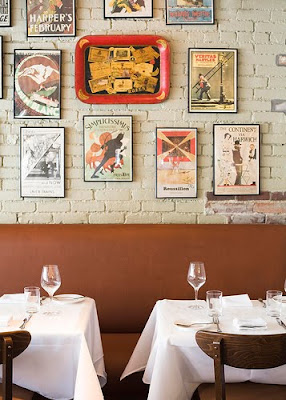 The history of French cuisine has had an extensive evolution over the centuries. As early as the Middle Ages, creativity and foreign influence empowered the national cuisine and it took on twists and turns from various royal, social, political, and guild movements.
The history of French cuisine has had an extensive evolution over the centuries. As early as the Middle Ages, creativity and foreign influence empowered the national cuisine and it took on twists and turns from various royal, social, political, and guild movements.At around 1400 AD, the first French cookbooks imitated Moorish cuisine. Sugar, which was still a luxury, made food sweet. Saffron gilded it, rose water perfumed it, and milk of almonds made it rich. Today's taste for tagine's and couscous is an echo of the middle ages.
In 1533, Catherine De Medicis, (who was a Florentine Princess) married Henry duc d'Orleans (who later became King Henry II of France). She bought from Italy with her an entourage of Italian chefs, who in turn introduced an extensive variety of dishes, food preparation and dining etiquette. Although Italian and French cuisine have obvious differences, the contribution toward the current food culture of France can be attributed to Catherine's arrival.
In 1652, the first French cookbook appeared, entitled "Le Cuisine François". Written by a famous French chef, La Varenne, Le Cuisine Fransçois showed how French cuisine had become a vital part of cooking and dining in Europe. The book provided many preparation methods, including making a roux (a mix of flour and butter used for thickening soups and sauces). Before roux, the French, and others, had simply put bread in the soup to thicken it. Changes like these would make French cooking the most important type of cooking in Europe.
Restaurants have their origins in the French culture. Prior to the 18th century, people could "dine out" at their local guild member's kitchen, who would prepare a meal for them. This however, was often very restricted as their guild registry often controlled what the chefs were able to produce. The meal would be offered d'hote, which is where a meal is offered at a set price with very little or sometimes no choice at all. A tavern owner named Boulanger served soups, challenging the guilds in court, and won. Boulanger called these soups "restaurants", also known as "restoratives", and will be forever credited with the term we all use today.